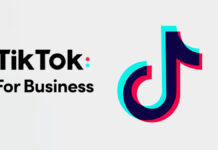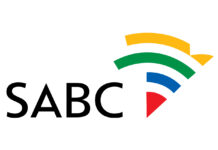A media interview is a fantastic opportunity for your organisation’s spokespeople to position themselves as thought leaders, subject matter experts and to create positive coverage for your company. As a CEO or top-level executive, you understand your business better than anyone. However, while you are armed with this knowledge, it is all too easy to be thrown off in the delivery of your points or arguments in an interview. A poor performance can be damning for a company and damaging for one’s reputation. Keshia Patchiappen, CEO of Condriac Digital Communications, states five reasons for why media training is essential when facing journalists in the firing line.
According to Patchiappen, you must be prepared for any outcome in a media interview, and this is often harder than it may appear. “As someone who has been in the hot seat on many occasions, I know first-hand how quickly you can lose control of an interview. The line of questioning may deviate from what you have prepared for, or journalists may have a predetermined agenda and will try to trip you up. These are 5 techniques to ensure that you get your point across, resonate with your audience, and, most importantly, maintain control in an interview.”
- Defining Your Key Messages
Fundamental to an interview is having a set of refined and well-thought-out key messages in order to ensure that you convey what you want to. These key messages should be original, short, and in line with your personal or organisational objectives. Maintaining clarity on your key messages means that you can keep coming back to them in an interview to strengthen and reiterate your standpoint.
- Prepare for the Difficult Questions
Never underestimate a journalist’s ability to ask you difficult questions and put you on the spot. Patchiappen says, “When prepping my clients for media training, aside from working on refining their key messaging and delivery, we spend a lot of time unpacking the worst-case scenario questions. Nothing is off-limits. The key is no let nothing surprise you; if you are prepared for everything, you will fall for nothing.”
- Own the Interview
Always keep in mind that an interview is a transaction more than a conversation. Journalists want information from you, and you are in control of conveying your key messages in a succinct way in order to get your point across. “There is no such thing as being too prepared you are. The more well-versed you are in your subject matter, the easier it will be for you to be flexible, responsive, concise, and most of all, confident. If you feel flustered at any point, keep going back to your key messages.”
- Use Assertive Body Language
In a live broadcast interview, people are not only listening to what you are saying but also take notice of your body posture and facial expressions. Many people are terrified of interviews, and this is reflected in your tone, use of language and posture, which can play to your detriment. Media training can help you deliver your message effectively by using your words, tone, and body language. Even off the air, maintaining good posture can help you feel more confident and in control.
- Avoid Being Misquoted
Walking in an interview unprepared for difficult questions and without having clarity around your key messages means that you run the risk of being misquoted. Through media training, you can confidently move away from being misquoted by providing a clear and concise message and reverting to your key points. Further to this, there is no time limit on how quickly to answer questions. If a challenging question is posed to you, take your time to formulate an answer and deliver it confidently.
About Condriac
Condriac Digital Communications is a full-service communications agency that specialises in programmatic lead generation, public relations and web development. Condriac is in the business of bridging the gaps between consumers and brands. The Condriac Digital Communications team will help you ensure that your brand remains engaging and relevant in an ever-evolving digital landscape, shaping your online footprint to meet the needs of demanding and digital-savvy clientele. Condriac follows the data, creating calculated, data-informed content, strategically placed online through social media and search engine optimisation, supported by targeted digital media to drive new and existing audiences in order to generate predictable and repeatable results.























































































